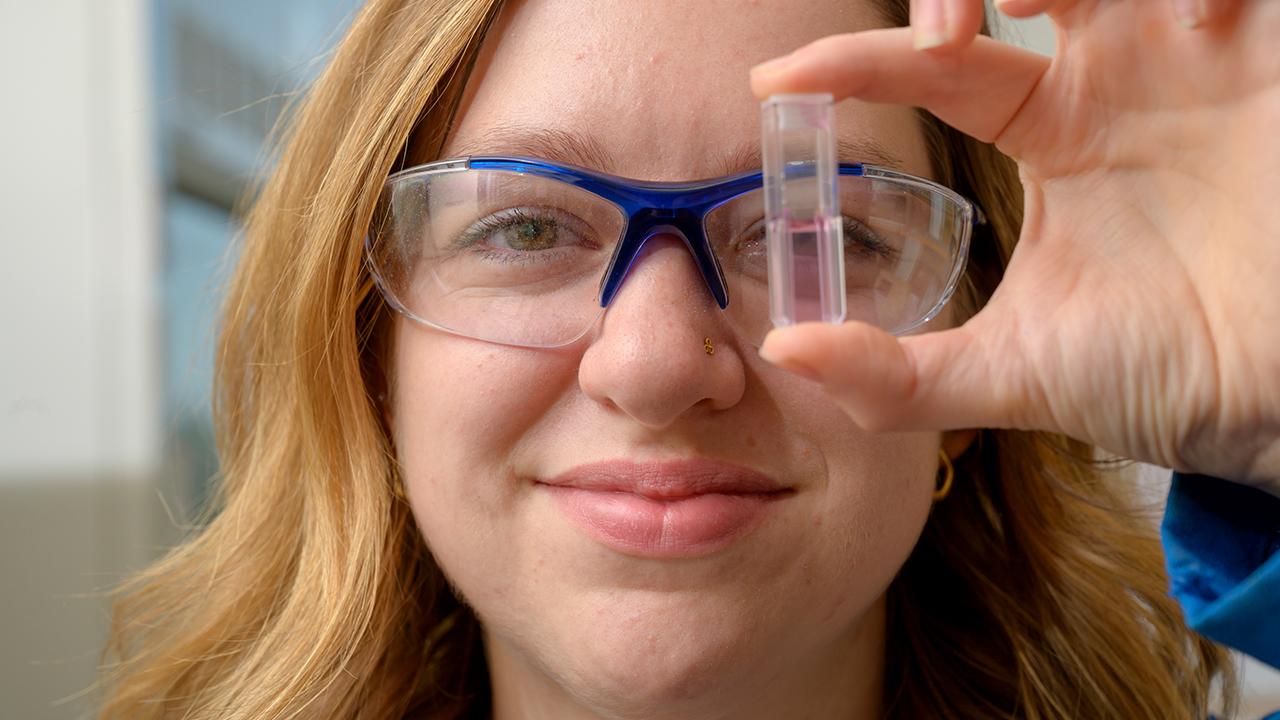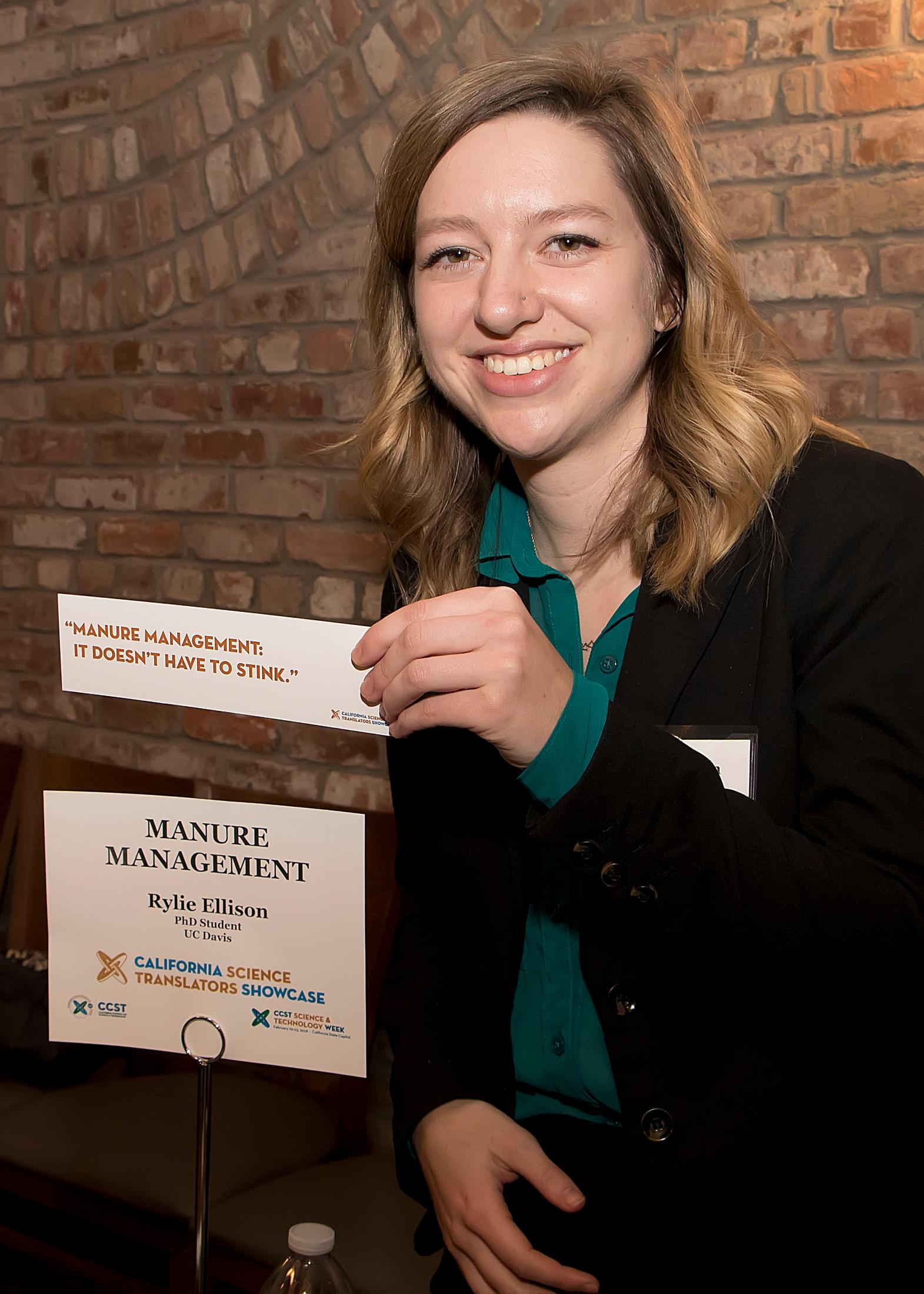
Building a Better Fertilizer
Rylie Ellison receives Van Alfen/MacDonald Graduate Student Support Fund Award
Rylie Ellison is the 2019 recipient of the Neal Van Alfen and James MacDonald Graduate Student Support Fund Award for her research and leadership on treating animal waste to improve its potential for use as a fertilizer in agriculture.
“Through her academic achievements, extracurricular activities and embrace of basic principles of chemistry and math, Rylie has demonstrated a comprehensive strategy for addressing complex environmental issues,” said her major professor, William Horwath, the J.G. Boswell Endowed Chair in Soil Science. “Her enthusiasm and drive for success assure that society and the environment will benefit as she develops into a distinguished leader and scholar.”
Ellison is a fourth year Ph.D. student in the Agricultural and Environmental Chemistry Graduate Group. She joined a research project to chemically engineer animal waste to produce an organic fertilizer product. Utilizing animal waste more extensively holds great promise for managing and recycling nitrogen for crop production. However, these wastes are notoriously inefficient sources of nitrogen, making them difficult to use as a predictable fertilizer.

With her exceptional grasp of organic chemistry principles and chemical reactions, Ellison focused on the processes associated with the stabilization of nitrogen compounds in animal waste. Chemically engineering animal waste for nitrogen fertilizer could also help reduce reliance on synthetically manufactured nitrogen fertilizer and reduce greenhouse gas emissions.
In addition to her research achievements, Ellison also has demonstrated a commitment to public service. She is one of the developers of Girls’ Outdoor Adventure in Leadership and Science, a free summer STEM program for high school girls from underrepresented backgrounds. She also completed the five-month Leaders for the Future Program, which trains students in leadership skills. In Ellison’s case, this included a project with the California Governor’s Office of Planning and Research analyzing the a Memorandum of Understanding associated with the international climate agreement presented at the Conference of the Parties (COP22) in Marrakech, Morocco.
Effective communication is a strong part of Ellison’s skill set. She is the coordinator for a class called “Translating Research Beyond Academia,” which teaches early career scientists about science policy and communication. She participates in the Capital Science Communicators group, which engages the public through presentations on science and policy. She also routinely communicates with dairy farmers and state agency staff to complement her research activities.
“The broader impact of her emerging career and goals is to provide solutions centered on basic STEM principles that provide important outcomes that humanity can benefit from to address global issues of food insecurity and human and ecosystem health,” Horwath said.
The Neal Van Alfen and James MacDonald Graduate Student Support Fund Award was established several years ago to acknowledge the contributions of former CA&ES dean Van Alfen and former executive associate dean MacDonald. The honor includes a $7,500 award.